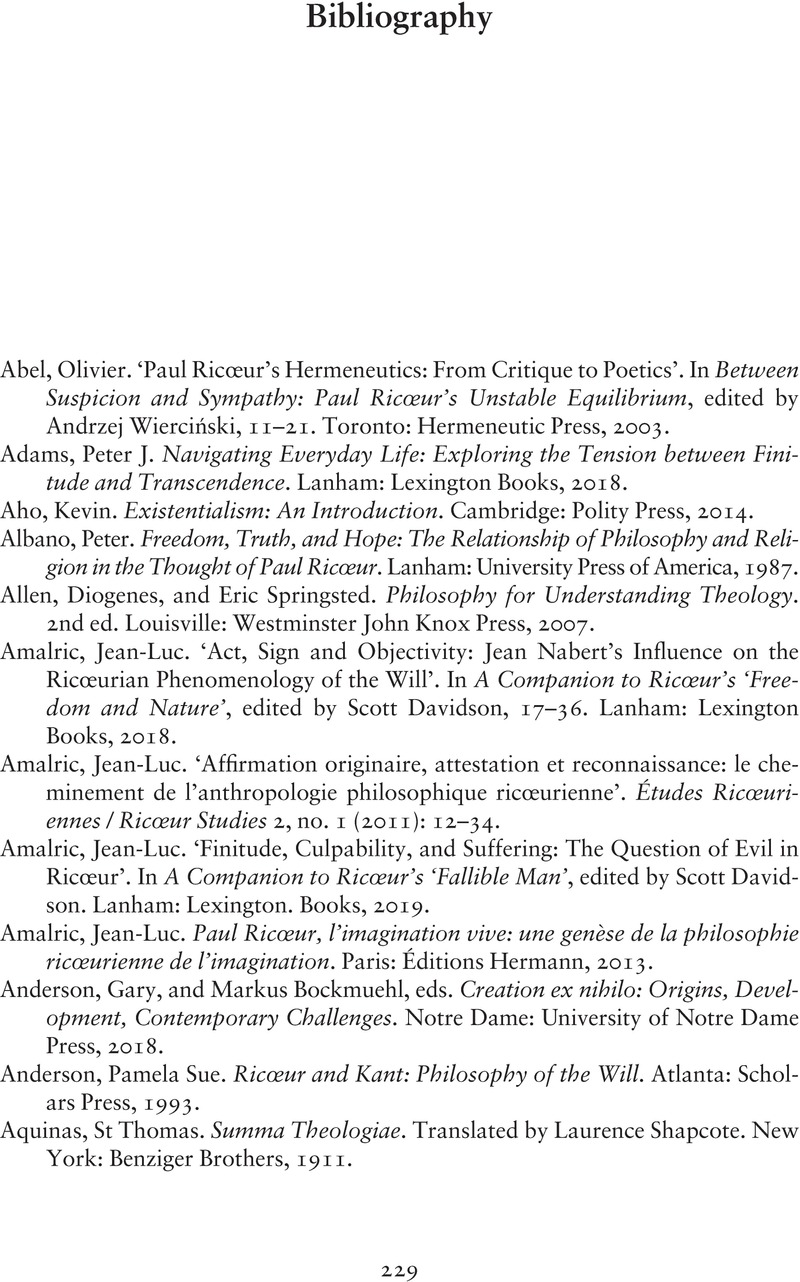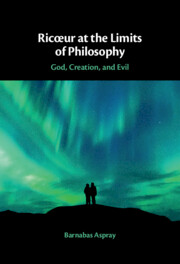Book contents
- Ricœur at the Limits of Philosophy
- Ricœur at the Limits of Philosophy
- Copyright page
- Dedication
- Contents
- Acknowledgements
- Introduction
- 1 Rage against the System
- 2 A Philosophy of Hope?
- 3 Absolutely no Absolutes?
- 4 Finitude and the Infinite
- 5 Finitude and Evil
- 6 Rightly Relating Evil and Finitude
- 7 The Poetic Symbol of Creation
- 8 The Mysterious Unity of Creation
- 9 The Original Goodness of Creation
- Conclusion
- Bibliography
- Index
- References
Bibliography
Published online by Cambridge University Press: 18 August 2022
- Ricœur at the Limits of Philosophy
- Ricœur at the Limits of Philosophy
- Copyright page
- Dedication
- Contents
- Acknowledgements
- Introduction
- 1 Rage against the System
- 2 A Philosophy of Hope?
- 3 Absolutely no Absolutes?
- 4 Finitude and the Infinite
- 5 Finitude and Evil
- 6 Rightly Relating Evil and Finitude
- 7 The Poetic Symbol of Creation
- 8 The Mysterious Unity of Creation
- 9 The Original Goodness of Creation
- Conclusion
- Bibliography
- Index
- References
Summary

- Type
- Chapter
- Information
- Ricœur at the Limits of PhilosophyGod, Creation, and Evil, pp. 229 - 244Publisher: Cambridge University PressPrint publication year: 2022

